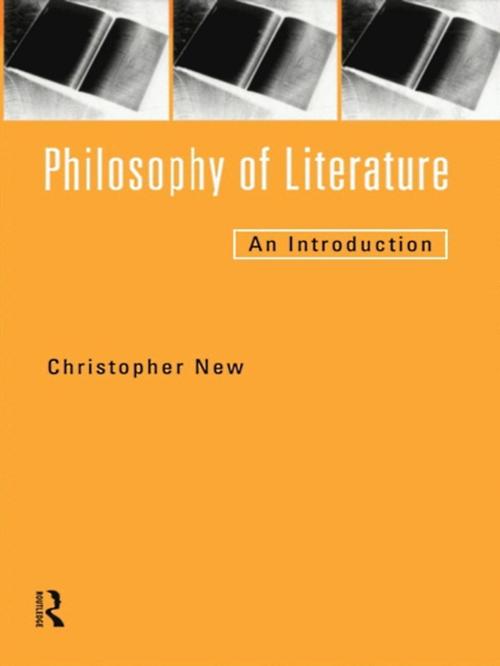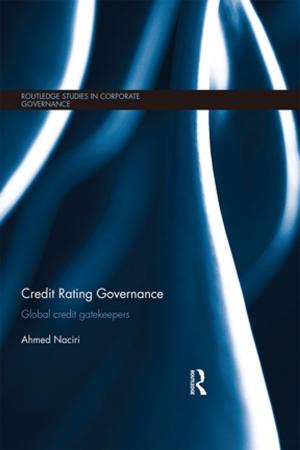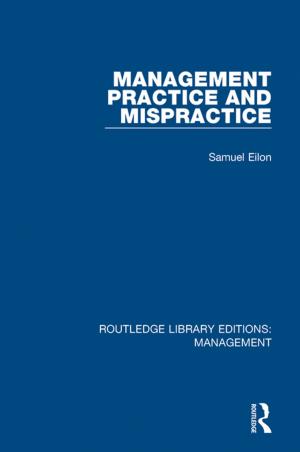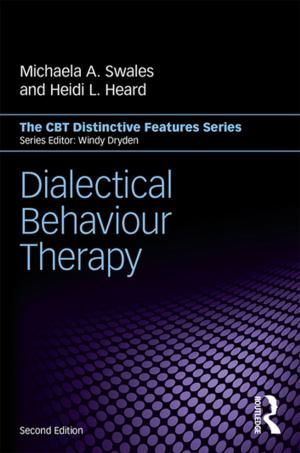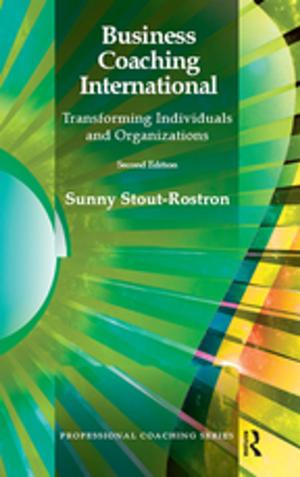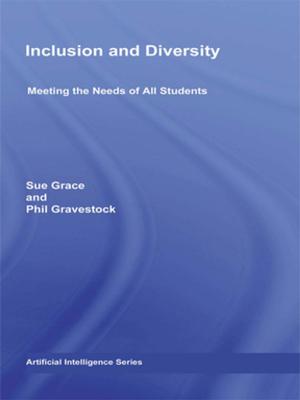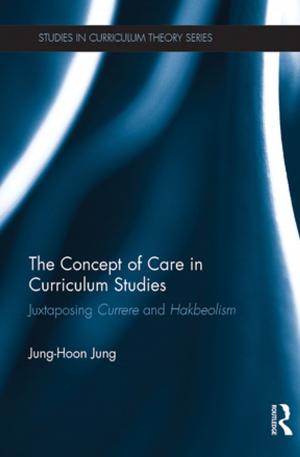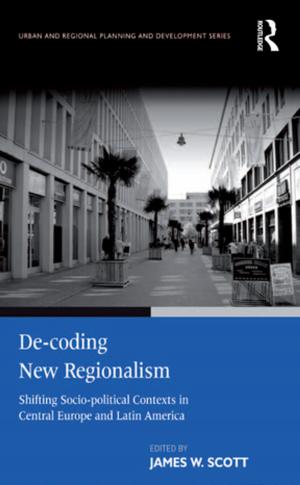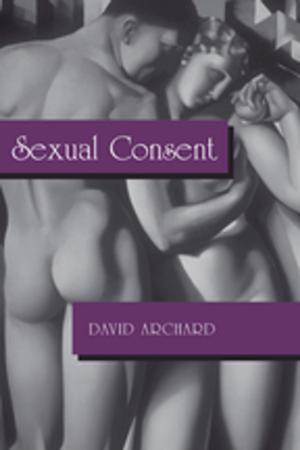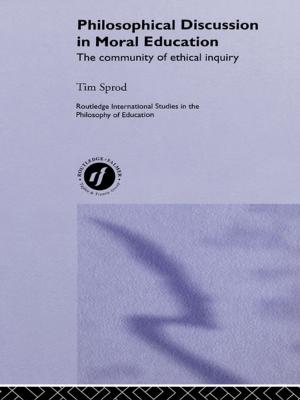| Author: | Christopher New | ISBN: | 9781134825196 |
| Publisher: | Taylor and Francis | Publication: | January 4, 2002 |
| Imprint: | Routledge | Language: | English |
| Author: | Christopher New |
| ISBN: | 9781134825196 |
| Publisher: | Taylor and Francis |
| Publication: | January 4, 2002 |
| Imprint: | Routledge |
| Language: | English |
Literature, like the visual arts, poses its own philosophical problems. While literary theorists have discussed the nature of literature intensively, analytic philosophers have usually dealt with literary problems either within the general framework of aesthetics or else in a way that is accessible only to a philosophical audience. The present book is unique in that it introduces the philosophy of literature from an analytic perspective accessible to both students of literature and students of philosophy. Specifically, the book addresses: the definition of literature, the distinction between oral and written literature and the identity of literary works
the nature of fiction and our emotional involvement with fictional characters
the concept of imagination and its role in the apprehension of literary works
theories of metaphor and postmodernist theory on the significance of the authors' intentions to the interpretationof their work
an examination of the relevance of thruth and morality to literary appreciation
Lucid and well organised and free from jargon,
hilosophy of Literature: An Introduction offers fresh approaches to traditional problems and raises new issues in the philosophy of literature.
Literature, like the visual arts, poses its own philosophical problems. While literary theorists have discussed the nature of literature intensively, analytic philosophers have usually dealt with literary problems either within the general framework of aesthetics or else in a way that is accessible only to a philosophical audience. The present book is unique in that it introduces the philosophy of literature from an analytic perspective accessible to both students of literature and students of philosophy. Specifically, the book addresses: the definition of literature, the distinction between oral and written literature and the identity of literary works
the nature of fiction and our emotional involvement with fictional characters
the concept of imagination and its role in the apprehension of literary works
theories of metaphor and postmodernist theory on the significance of the authors' intentions to the interpretationof their work
an examination of the relevance of thruth and morality to literary appreciation
Lucid and well organised and free from jargon,
hilosophy of Literature: An Introduction offers fresh approaches to traditional problems and raises new issues in the philosophy of literature.
